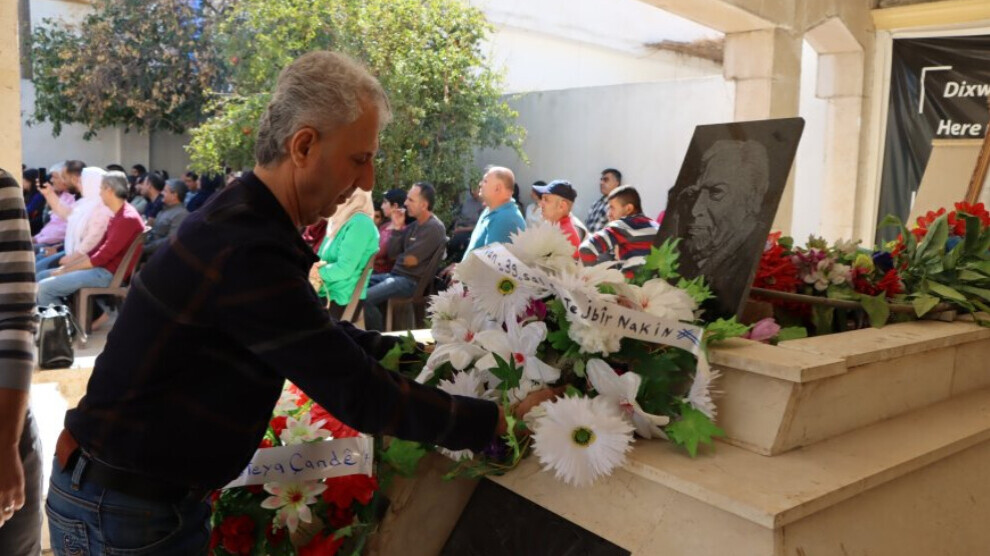Kurdish poet Cegerxwîn commemorated at his grave in Qamishlo
Kurdish poet and writer Cegerxwîn was commemorated at his grave in Qamishlo on the 39th anniversary of his death.
Kurdish poet and writer Cegerxwîn was commemorated at his grave in Qamishlo on the 39th anniversary of his death.

Kurdish poet and writer Cegerxwîn was commemorated at his grave in Qamishlo on the 39th anniversary of his death. The "poet of freedom" died in Stockholm on 22 October 1984 at the age of 81. He was buried in the garden of his house in the Xerbî district in Qamishlo, where he had spent most of his life.
For the commemoration of Cegerxwîn, many intellectuals and people from the field of Kurdish literature and cultural studies came together at his gravesite. Numerous associations and institutions were also represented, such as the Union of Kurdish Writers in Syria, the Movement for Democratic Culture and Art (Tev-Çand), the Cultural Department of the Autonomous Administration of North and East Syria (AANES), political parties and the Women's Council of North and East Syria.
The commemoration began with a minute of silence, after which Xalis Mesor addressed the audience on behalf of the Association of Cultural Institutions in the Cizîrê Region. "Cegerxwîn was the shining star in the literary sky of Kurdistan. A poet with an unsteady heart that beat for his people. His glow will never fade, but will always shine in our hearts," said Mesor.
Behrîn Osê, Chairperson of the Union of Kurdish Writers in Syria, read out a letter from Cegerxwîn's relatives, who thanked the Kurdish society for the deep attachment and appreciation it has shown the poet for decades, and for the dignified commemoration at his grave. "It is an honour for us to gather around the poet Cegerxwîn, to commemorate and mourn together in this difficult time that the Kurdish people and the whole world is going through," the message said. It also emphasised that the main concern of Cegerxwîn had been to work towards Kurdish unity. This was also the aim of his relatives and survivors, the letter said. "We consider it the responsibility of everyone to work for national unity. The field of culture and literature has an essential role to play."
Ebdulmecîd Xelef, member of the Cultural Committee of the Cizîrê region, stated that the works of poets like Cegerxwîn should be included as material in the curricula of schools and universities, on the one hand, to give the authors a dignified commemoration and on the other hand, to enable a revival of the poetry of the Kurdish resistance. "This nationally valuable cultural heritage should be preserved for future generations," Xelef emphasised. After further speeches, flowers were laid at Cegerxwîn's grave.